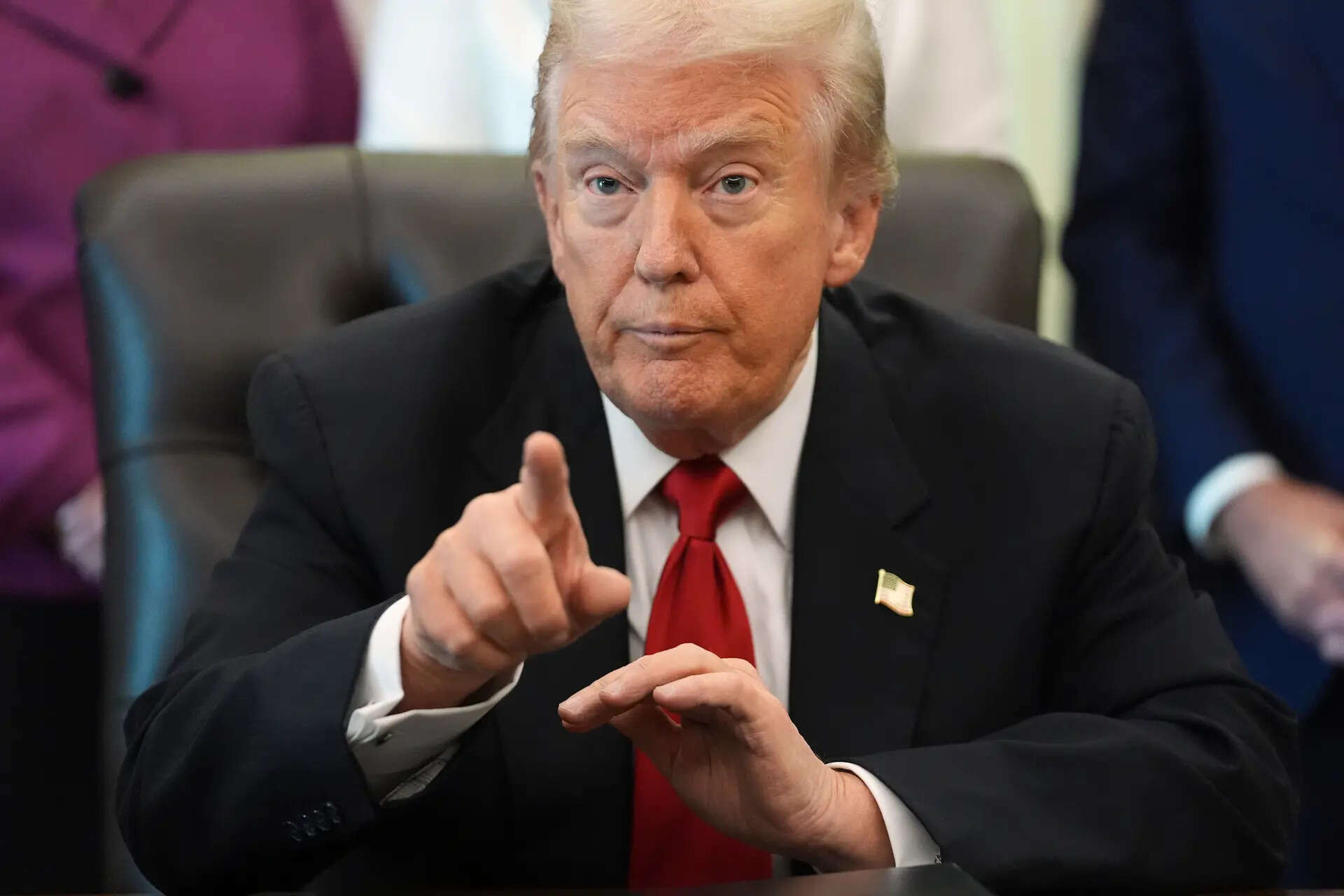President Trump is pushing Republicans to redirect ACA funds directly to Americans, bypassing insurance companies. He argues this would save citizens money and dismantle the current healthcare system. This proposal comes amid a prolonged government shutdown, with Democrats offering to reopen it if ACA subsidies are maintained for a year. Republicans have rejected this, demanding the government be funded first.
Navigating the Choppy Waters of US Healthcare: A Potential Shutdown Looms
The political climate in Washington is, as always, bracing for potential turbulence, this time centered around the ever-controversial Affordable Care Act (ACA). Former President Trump has recently thrown a curveball into the debate, suggesting a radical shift in how ACA payments are distributed, directly targeting what he calls “fat cat insurers” and reigniting a familiar battle over the future of American healthcare. The implications of his proposals are far-reaching, and with a looming government shutdown on the horizon, understanding the dynamics at play is more crucial than ever.
Trump’s ACA Gambit: Cutting Out the Middleman?
At the heart of Trump’s renewed focus on the ACA lies a proposal to bypass insurance companies altogether. Instead of the government providing subsidies to insurers to help them offer affordable plans, Trump suggests sending those payments directly to American citizens. His argument? That this would eliminate the “waste and corruption” inherent in the current system, putting money directly into the pockets of those who need it most.
This isn’t entirely a new concept. Some Republicans have long advocated for a more direct subsidy approach, arguing that it empowers individuals to choose the plans that best suit their needs, rather than being limited to the options offered by insurers participating in the ACA marketplaces. The challenge, however, lies in the complexities of implementation. How would these payments be structured? How would eligibility be determined? And perhaps most importantly, could such a system be implemented without causing significant disruption to the millions of Americans who currently rely on ACA subsidies to afford their health insurance?
The Specter of a Shutdown and Its Potential Impact
Trump’s pronouncements come at a particularly sensitive time, with Congress facing a rapidly approaching deadline to pass a budget and avert a government shutdown. The debate over funding levels for various government programs, including healthcare, is already fraught with partisan tension. Adding Trump’s ACA proposal into the mix only further complicates matters, raising the stakes and increasing the likelihood of a stalemate.
A government shutdown could have a cascading effect on the healthcare system. While essential services like Medicare and Medicaid would likely continue, other critical functions, such as data collection, program oversight, and even enrollment assistance, could be severely hampered. This could lead to delays in processing claims, confusion among consumers, and ultimately, reduced access to care for some of the most vulnerable populations. The alt text of the image below illustrates the financial strain many Americans face regarding affordable healthcare.

Decoding the Motives: Politics and Policy Intertwined
Understanding Trump’s motives requires a nuanced approach, separating the political rhetoric from the potential policy implications. On one hand, his renewed focus on the ACA could be seen as a strategic move to energize his base ahead of the upcoming election. By attacking “fat cat insurers” and promising to deliver direct relief to Americans, he’s tapping into a deep vein of populist sentiment.
On the other hand, there may be a genuine desire to address what he sees as the flaws in the ACA system. Trump has long been a critic of the law, arguing that it has driven up premiums, limited choices, and failed to deliver on its promise of affordable, accessible healthcare for all. His proposal, while controversial, could be interpreted as an attempt to find a more market-driven approach to healthcare reform.
The Path Forward: Navigating Uncertainty
Regardless of the motivations, the current situation underscores the urgent need for a constructive dialogue on the future of US healthcare. The ACA, while imperfect, has provided coverage to millions of Americans who would otherwise be uninsured. Any proposed changes must be carefully considered, with a focus on ensuring that vulnerable populations are protected and that access to care is not jeopardized.
Finding common ground in such a polarized environment will be a significant challenge. But the alternative – a continued cycle of political brinkmanship and potential disruptions to the healthcare system – is simply unacceptable. The health and well-being of millions of Americans depend on a more stable and sustainable path forward. Exploring options like strengthening existing ACA infrastructure or finding innovative ways to control healthcare costs might offer more viable, bipartisan solutions in the long run. See how value-based care models are changing the landscape [here – internal link].
The future of affordable and accessible healthcare in the United States remains uncertain. The debate surrounding ACA payments, coupled with the threat of a government shutdown, creates a volatile landscape. Ultimately, a solution requires careful consideration and a commitment to finding common ground, ensuring the well-being of all Americans.







